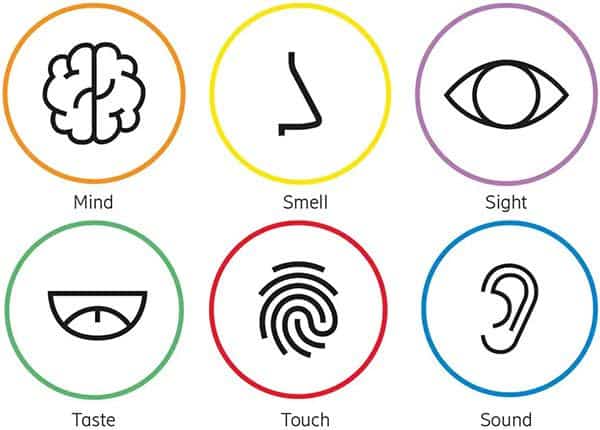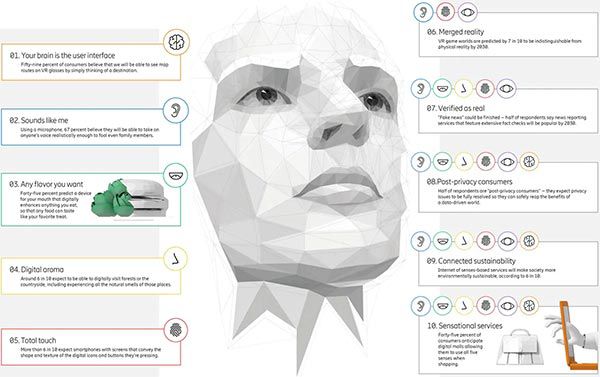Sensory experiences capable of leveraging digital innovations: this is what awaits us in 2030, setting foot in the era of the Internet of Senses.
After the ‘Internet of Things’, it will be up to the Internet of Senses. This is what emerges from the ninth edition of the Hot Consumer Trends report published by Ericsson and compiled on the basis of what emerged questioning consumers in 24 cities around the world: the advent of a new service-based economy is expected within the next ten years on sensory experiences in the digital field.
The era of the Internet of Senses will come
Our brain will become an interface, a hypothesis among other things already examined by some experimental projects. We will be able to dialogue in a bidirectional way without touching any screen and without giving voice commands, simply by thinking. This is why the mind is indicated as a sixth sense, a fundamental element and an integral part of the Internet of Senses together with smell, sight, taste, touch and hearing.

A science-fiction scenario? To understand how much technological progress is running fast, with all that follows in terms of positive and non-positive effects, let us remember that just a little more than a decade ago most of us did not own a smartphone. In any case, it will be necessary to accompany innovation, to address it according to the principles of respect and sustainability.
Here are ten points that emerged from the study conducted by Ericsson Consumer Lab on what are the predictions regarding what technologies such as artificial intelligence, virtual and augmented reality, 5G, cloud and automation will make possible by 2030.
- Just think of a destination to be able to see the path traced by the maps on VR viewers;
- using a microphone it will be possible to imitate anyone’s voice in a realistic way;
- devices will come to improve the taste of food thanks to the use of digital technologies;
- you can walk through forests and countryside thanks to digital technologies, also recognizing natural smells;
- there will be smartphones with screens capable of returning the shape and consistency of icons and buttons;
- by 2030 virtual reality gaming experiences will be indistinguishable from the physical dimension;
- the information services will adopt fact-checking extensively within a decade;
- the problems relating to the issue of privacy will be solved so that you can safely take advantage of the advantages of the data-driven world;
- the Internet of Senses will make society more environmentally sustainable;
- digital shopping centres will be created where you can use the five senses during shopping.

The potential range of the Internet of Senses will extend from personal experiences (shopping, entertainment, etc.) to applications that will have an impact on the community (for example the analysis of behaviour in smart cities). We close with the words of Pernilla Jonsson, number one of Ericsson Consumer & IndustryLab.
We are talking about an epochal transition, from the current connectivity connected to smartphones to the immersive experiences deriving from the connection of our senses. This report explores what this change can mean for consumers, a scenario in which augmented reality viewers represent the entry point.
